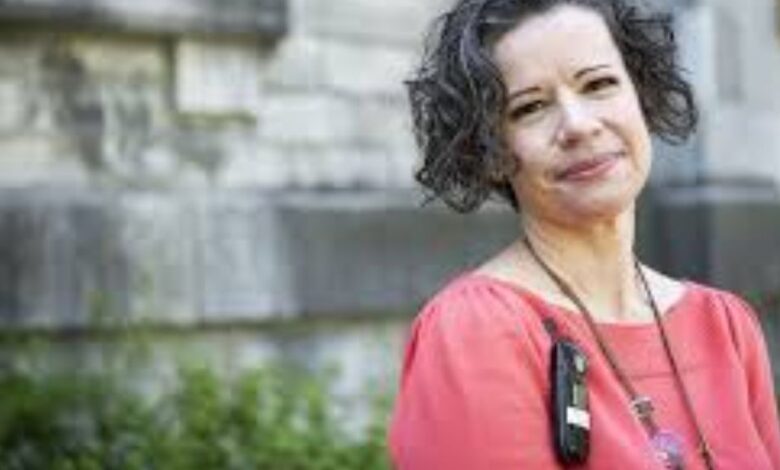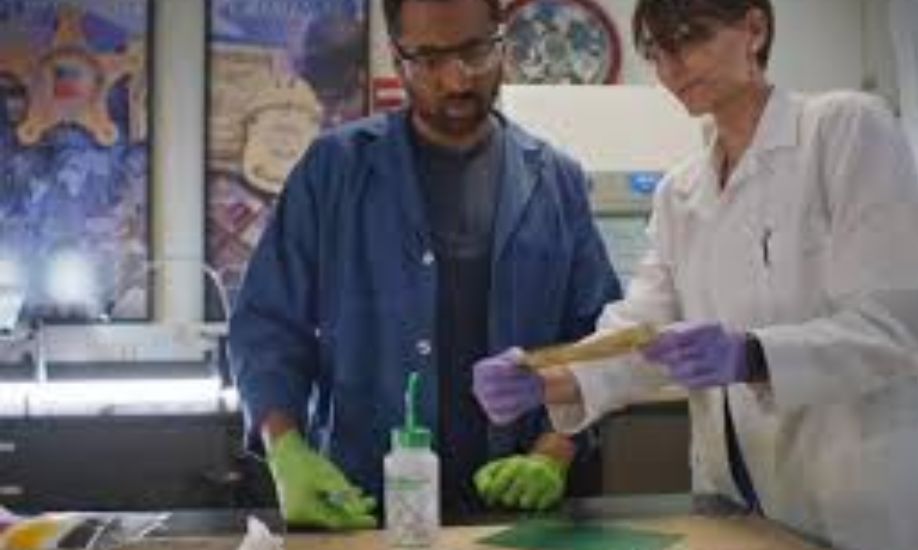jane a. lewis forensic: A Leading Expert in Document Examination

jane a. lewis forensic is a distinguished name in the world of forensic document examination. With a strong academic background and extensive experience in the field, she has become a trusted expert in the analysis of questioned documents. This article delves into Jane A. Lewis’s career, her contributions to the field of forensic science, and the impact of her work on both academic and practical applications.
Early Life and Foundation of Forensic Expertise
jane a. lewis forensic began her career in forensic document examination with a robust educational foundation. She earned a Master’s degree in Forensic Science from The George Washington University, one of the most prestigious programs in the field. Her initial focus on handwriting, ink, and paper analysis provided her with the fundamental skills needed to tackle complex cases involving document authenticity. Over the years, she has developed a reputation for her meticulous approach to document examination, gaining the trust of legal professionals, law enforcement agencies, and private investigators alike.
Contributions to Forensic Document Examination
One of jane a. lewis forensic’s most notable contributions to forensic document examination is her work on minimizing cognitive bias. Cognitive bias can significantly affect forensic analysis, leading to errors in judgment and potentially compromising the integrity of examinations. Jane A. Lewis has been at the forefront of developing standardized procedures that promote objectivity and reduce bias in document analysis. Her methodologies are now widely adopted across the field, ensuring more accurate and reliable results.
Key Publications and Their Impact
jane a. lewis forensic is also a prolific author in forensic science. Her book, “Forensic Document Examination: Fundamentals and Current Trends,” published in 2014, has become a staple reference for both novice and experienced forensic document examiners. The book covers a wide range of topics, from basic principles of document analysis to advanced techniques. It also addresses the latest trends and technologies shaping the future of forensic document examination, making it an essential resource for anyone in the field. This publication has significantly contributed to the education of new professionals and the ongoing training of seasoned experts in forensic document examination.
Involvement in High-Profile Cases
Throughout her career, jane a. lewis forensic has been involved in numerous high-profile cases where her expertise in forensic document examination was crucial. Her ability to detect forgeries, alterations, and other manipulations in documents has helped resolve complex legal disputes and criminal investigations. She has played a pivotal role in securing convictions and uncovering the truth in cases where the authenticity of documents was in question. Her work has reinforced the importance of forensic document examination in the legal system, where many cases hinge on the validity of documentary evidence.
The Importance of Forensic Document Examination
Forensic document examination is a critical component of the justice system. Experts like jane a. lewis forensic play a vital role in analyzing documents to determine their authenticity and integrity. This process involves examining various elements such as handwriting, ink, paper type, and alterations to identify signs of tampering, forgery, or fraud. The expertise provided by forensic document examiners is often crucial in court cases, where the outcome may depend on the validity of presented documents.
Challenges and Future Directions in Forensic Document Examination
Despite the advancements in forensic document examination, the field faces ongoing challenges. With the increasing sophistication of document forgeries, there is a growing need for continuous research and development in forensic methods and technologies. Jane A. Lewis has been a vocal advocate for innovation in this area, emphasizing the importance of staying ahead of evolving threats. She has also highlighted the need for thorough training and education of the next generation of forensic document examiners, ensuring that the field remains robust and capable of meeting future demands.
Educational Impact and Mentorship
Beyond her contributions to forensic science literature, Jane A. Lewis is committed to education and mentorship. She has worked closely with various forensic science programs and organizations to train new professionals in the field. Her teachings focus on both the theoretical and practical aspects of document examination, emphasizing ethical practices, accuracy, and the importance of minimizing bias in forensic work. Her dedication to mentoring ensures that her knowledge and expertise are passed on to future generations, sustaining the quality and reliability of forensic document examination.
Conclusion: The Legacy of Jane A. Lewis in Forensic Science
jane a. lewis forensic’s work in forensic document examination has left a lasting impact on the field. Her efforts to minimize cognitive bias, her authoritative publications, and her involvement in high-profile cases have solidified her reputation as a leading expert in forensic science. As the field continues to evolve, her contributions will inspire future advancements and innovations, ensuring that forensic document examination remains a critical and reliable component of the justice system.
Final Thoughts
jane a. lewis forensic’s journey in forensic science is a testament to the importance of expertise, dedication, and innovation in this crucial field. Her contributions have enhanced the credibility and accuracy of forensic document examination, providing invaluable support to the legal community and ensuring that justice is served through objective and reliable analysis. As the challenges of document examination continue to evolve, Jane A. Lewis’s legacy will undoubtedly guide and inspire those who follow in her footsteps.
FAQs About Jane A. Lewis Forensic Document Examiner
Who is Jane A. Lewis, and what is her expertise in forensic document examination?
Jane A. Lewis is a prominent forensic document examiner with extensive experience and expertise in analyzing questioned documents. She holds a Master’s degree in Forensic Science from The George Washington University and is certified by the American Board of Forensic Document Examiners (ABFDE). Lewis is known for her meticulous approach to examining handwriting, ink, paper, and other elements of documents to detect forgery, tampering, or fraud. Her contributions include promoting standardized procedures to minimize cognitive bias in forensic analysis, ensuring more accurate and objective results.
What are some of Jane A. Lewis’s most notable contributions to forensic document examination?
Jane A. Lewis has made several significant contributions to the field, particularly in minimizing cognitive bias during document analysis. She has developed and advocated for standardized procedures that promote objectivity and reduce the risk of errors in forensic document examination. Her work in this area has been widely adopted, enhancing the reliability of forensic findings. Additionally, she has authored the book “Forensic Document Examination: Fundamentals and Current Trends,” which serves as a key reference for both new and experienced forensic examiners.

What types of cases has Jane A. Lewis been involved in, and why are her skills important?
Jane A. Lewis has been involved in numerous high-profile cases where her expertise in forensic document examination was crucial. She has worked on cases requiring the detection of forgeries, alterations, and other document manipulations, which are often central to legal disputes and criminal investigations. Her skills are vital in ensuring the authenticity and integrity of documents presented as evidence in court, helping to uphold justice by providing objective and reliable forensic analysis.
How has Jane A. Lewis contributed to the education and training of new forensic document examiners?
Jane A. Lewis is committed to the education and mentorship of new professionals in forensic document examination. She has been involved with various forensic science programs and organizations, providing training that emphasizes ethical practices, accuracy, and the importance of minimizing bias in forensic work. Her book and other publications have become essential resources for teaching both the foundational principles and advanced techniques in forensic document examination.
What challenges does Jane A. Lewis see in the future of forensic document examination, and how is she addressing them?
Jane A. Lewis recognizes several challenges in the field, particularly the increasing sophistication of document forgeries. She advocates for continuous research and development in forensic methods and technologies to stay ahead of these evolving threats. She also stresses the importance of ongoing education and training for forensic document examiners, ensuring they are well-equipped to meet the demands of the field and maintain high standards of accuracy and reliability in their work.
These FAQs provide a comprehensive overview of Jane A. Lewis’s role and impact in the field of forensic document examination, highlighting her expertise, contributions, and vision for the future of forensic science.



